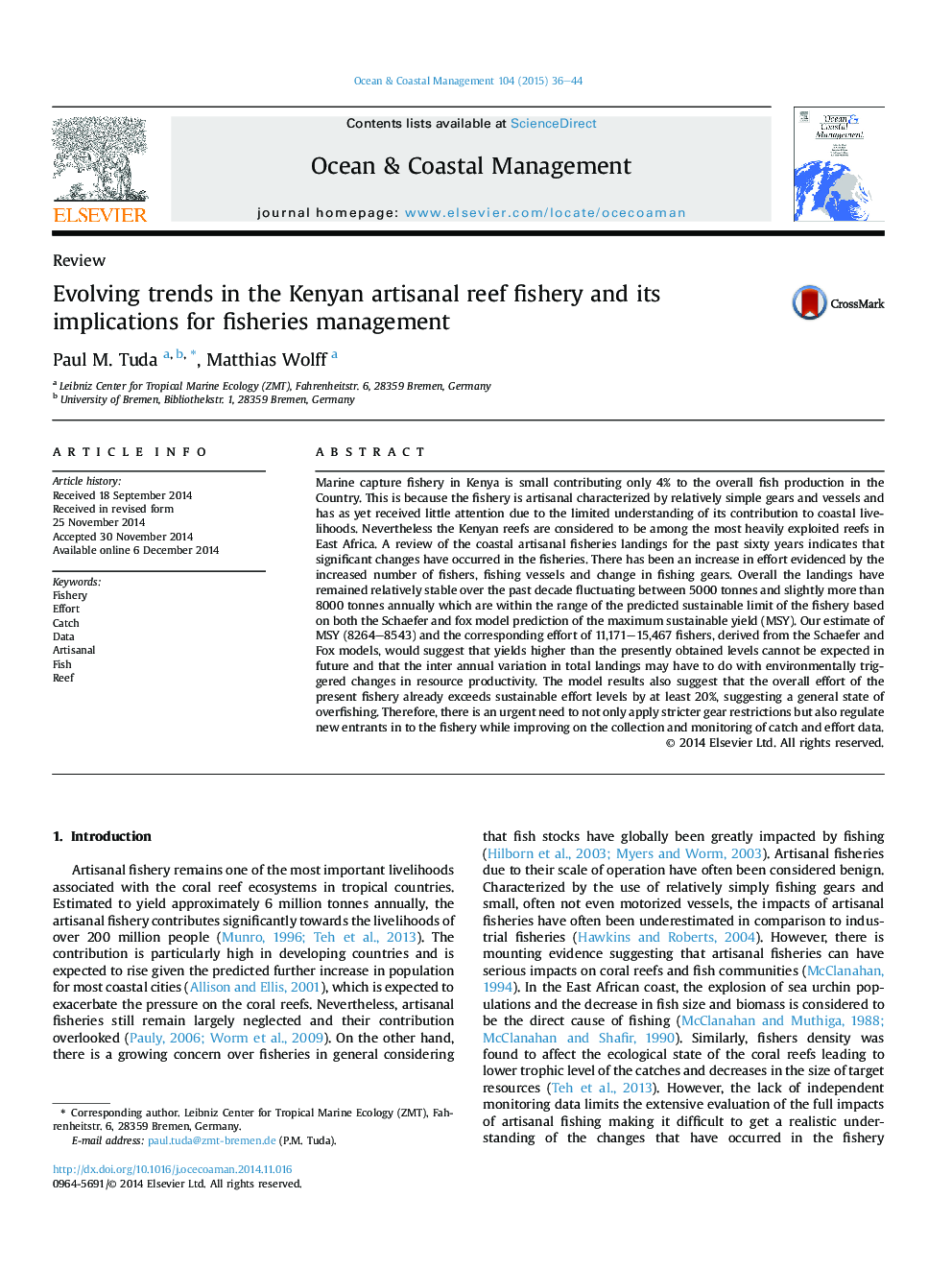| Article ID | Journal | Published Year | Pages | File Type |
|---|---|---|---|---|
| 1723538 | Ocean & Coastal Management | 2015 | 9 Pages |
•Significant changes have occurred in the fisheries.•Overall landings have remained relatively stable over the past decade.•Present fishery already exceeds sustainable levels suggesting a general state of overfishing.•Yields higher than the presently obtained levels cannot be expected in future.•There is need for stricter gear restrictions, control of new entrants and improved data collection.
Marine capture fishery in Kenya is small contributing only 4% to the overall fish production in the Country. This is because the fishery is artisanal characterized by relatively simple gears and vessels and has as yet received little attention due to the limited understanding of its contribution to coastal livelihoods. Nevertheless the Kenyan reefs are considered to be among the most heavily exploited reefs in East Africa. A review of the coastal artisanal fisheries landings for the past sixty years indicates that significant changes have occurred in the fisheries. There has been an increase in effort evidenced by the increased number of fishers, fishing vessels and change in fishing gears. Overall the landings have remained relatively stable over the past decade fluctuating between 5000 tonnes and slightly more than 8000 tonnes annually which are within the range of the predicted sustainable limit of the fishery based on both the Schaefer and fox model prediction of the maximum sustainable yield (MSY). Our estimate of MSY (8264–8543) and the corresponding effort of 11,171–15,467 fishers, derived from the Schaefer and Fox models, would suggest that yields higher than the presently obtained levels cannot be expected in future and that the inter annual variation in total landings may have to do with environmentally triggered changes in resource productivity. The model results also suggest that the overall effort of the present fishery already exceeds sustainable effort levels by at least 20%, suggesting a general state of overfishing. Therefore, there is an urgent need to not only apply stricter gear restrictions but also regulate new entrants in to the fishery while improving on the collection and monitoring of catch and effort data.
